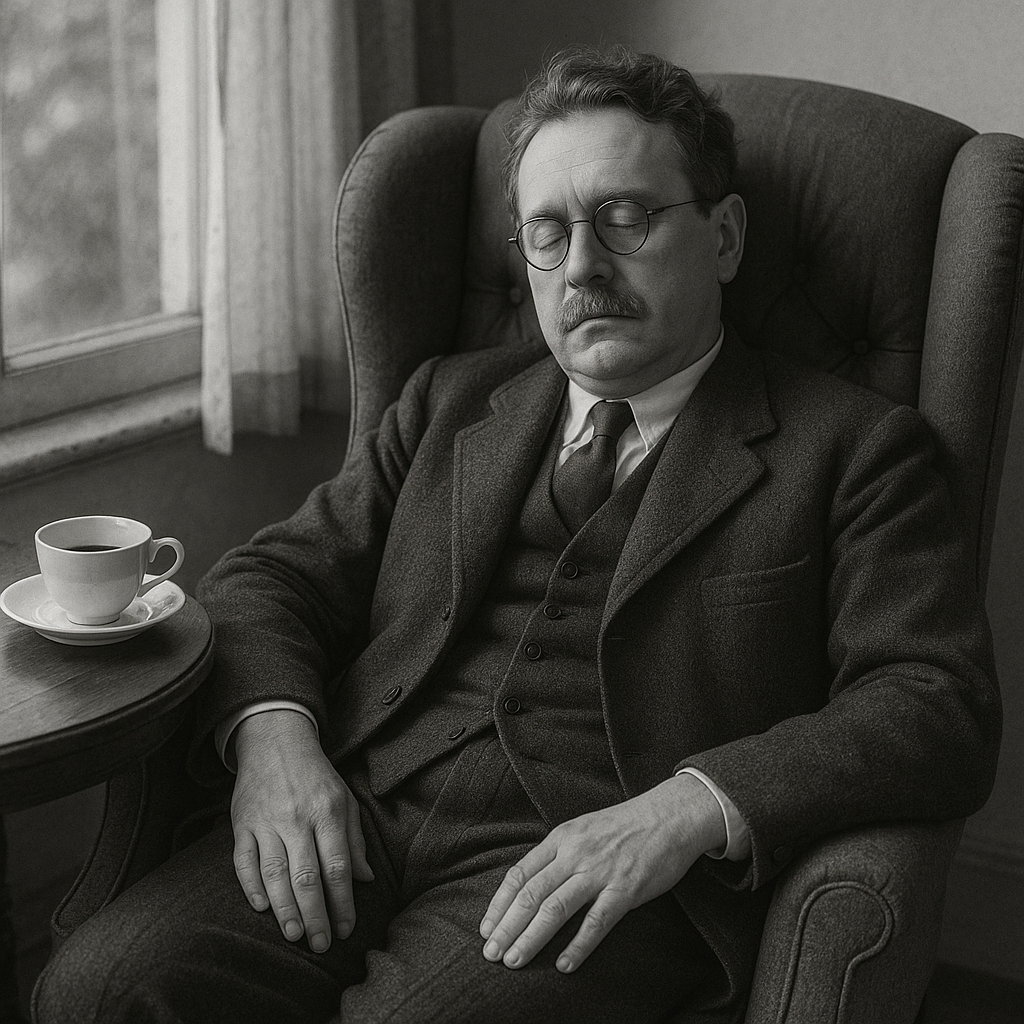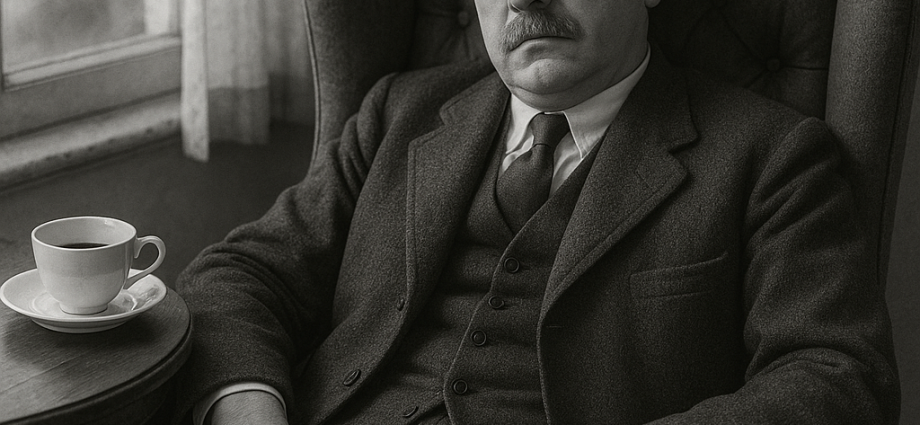By Staff Correspondent, Ministry of Mindful Affairs
 Among the lesser-known virtues of civilisation—clean socks, punctual trains, and the moderate use of adjectives—lies a quality increasingly rare in modern life: the ability to do nothing properly. Not lazily, nor guiltily, but with dignity and purpose. Rest, like patriotism or pastry, is only beneficial when taken seriously.
Among the lesser-known virtues of civilisation—clean socks, punctual trains, and the moderate use of adjectives—lies a quality increasingly rare in modern life: the ability to do nothing properly. Not lazily, nor guiltily, but with dignity and purpose. Rest, like patriotism or pastry, is only beneficial when taken seriously.
In recent years, the cult of perpetual motion has gripped the Kingdom. Every office clerk aspires to urgency; every factory worker measures worth in fatigue. To confess to an afternoon’s idleness is to risk being mistaken for an artist. Yet the medical evidence is clear, and the moral evidence clearer still: the citizen who never rests becomes a menace to those who do.
The Physiology of Stillness
Physicians from the Royal College of Recuperative Sciences have confirmed that deliberate repose strengthens the nerves, clarifies the complexion, and prevents “that particular trembling of the soul associated with excess correspondence.” The heart, it seems, was not designed to race continuously for reasons of civic ambition. Even clocks, when overwound, grow erratic.
A period of unambitious sitting—preferably in a comfortable chair within reach of tea—allows the internal mechanisms to return to civility. The blood resumes its polite circulation, thoughts regain coherence, and one’s temper stops trying to enlist in the Ministry of War.
The Moral Defence of Idleness
Idleness, properly practiced, is not neglect but discretion. It is the art of distinguishing between what must be done and what can safely be ignored until the world improves itself. The philosopher Crispin Mallory wrote that “every minute spent resting prevents the creation of at least one unnecessary committee.” Many consider this an underappreciated form of public service.
The industrious classes may object that inactivity breeds inefficiency. They are mistaken. It breeds insight. The mind, once freed from the tyranny of productivity, begins to arrange its furniture. Many of the Kingdom’s best ideas—paper currency, jam, and the concept of the three-day holiday—were conceived by individuals who happened to be sitting down at the time.
Rest as Discipline
True rest is not collapse but composure. It demands restraint: the refusal to fidget, to tidy, or to “catch up” on correspondence while pretending to relax. One must surrender entirely to the act of being unoccupied. This is more difficult than it sounds. The untrained mind, when left alone, behaves like a dog in an empty house—knocking over memories and barking at imagined intruders.
To master rest, therefore, requires practice. Begin with five minutes of conscious stillness after luncheon. Allow the eyes to focus on nothing in particular. If thoughts intrude, greet them courteously and send them away to wait outside. Progress to fifteen minutes as fortitude improves. Some find gentle breathing helpful; others prefer the reassuring presence of a newspaper not being read.
National Implications
Were the entire Kingdom to rest simultaneously, even for an hour, one suspects the effect would be transformative. Crime would fall, tempers would cool, and Parliament might, for once, speak in complete sentences. The Bureau of Imaginary Problems could take the afternoon off entirely. Alas, such collective serenity remains unlikely, for rest cannot be legislated—it must be learned.
Domestic Applications
Within the home, rest should be approached ceremonially. A tidy chair, a small cushion, and the absence of interruptions are essential. Pets may remain if well behaved; children, if asleep. The wireless should hum quietly, preferably with music that neither insists nor apologises. Tea may be present, though its purpose is symbolic rather than medicinal.
Those who share quarters with industrious companions are advised to disguise their restfulness under the guise of “contemplation.” This preserves dignity while discouraging interference. Should anyone inquire, reply simply, “I am aligning my faculties.” No one knows what this means, and therefore they will leave you alone.
The Paradox of Rejuvenation
After even a brief interlude of proper rest, one notices peculiar side effects: the air seems clearer, one’s shoes more tolerable, and the world slightly less absurd. Tasks postponed during repose often resolve themselves mysteriously without effort. A mind that has stopped spinning tends to start seeing.
As evening approaches, the skilled rester will feel a sense of renewed benevolence toward the human race. The overworked seldom experience this; they are too tired to forgive anyone. A rested citizen, by contrast, becomes both more pleasant and less political—a result the government should surely subsidise.
In Conclusion
The time has come to rehabilitate rest, to treat it not as failure but as maintenance of the soul. Let it be said of our Kingdom that, in the midst of toil and telegrams, we remembered how to sit down and mean it. The world will continue its frantic orbit without our supervision; it has done so for quite some time.
So take an hour this week—perhaps today—and do absolutely nothing. Do it bravely, without apology or explanation. You will discover, as generations of philosophers and cats have done before you, that stillness is not the opposite of progress but its precondition.
For the health of the body, the peace of the mind, and the preservation of the realm, let every citizen of Eyehasseen rest—properly, quietly, and on purpose.
